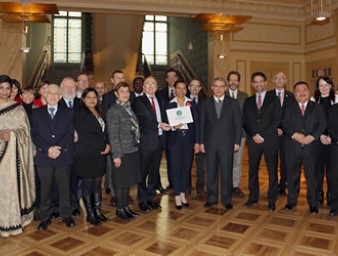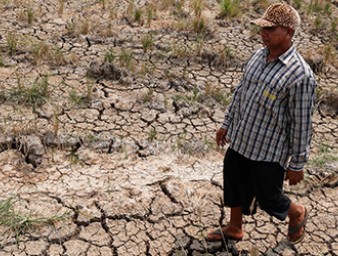Link between humans and the environment must be preserved
16 November 2023
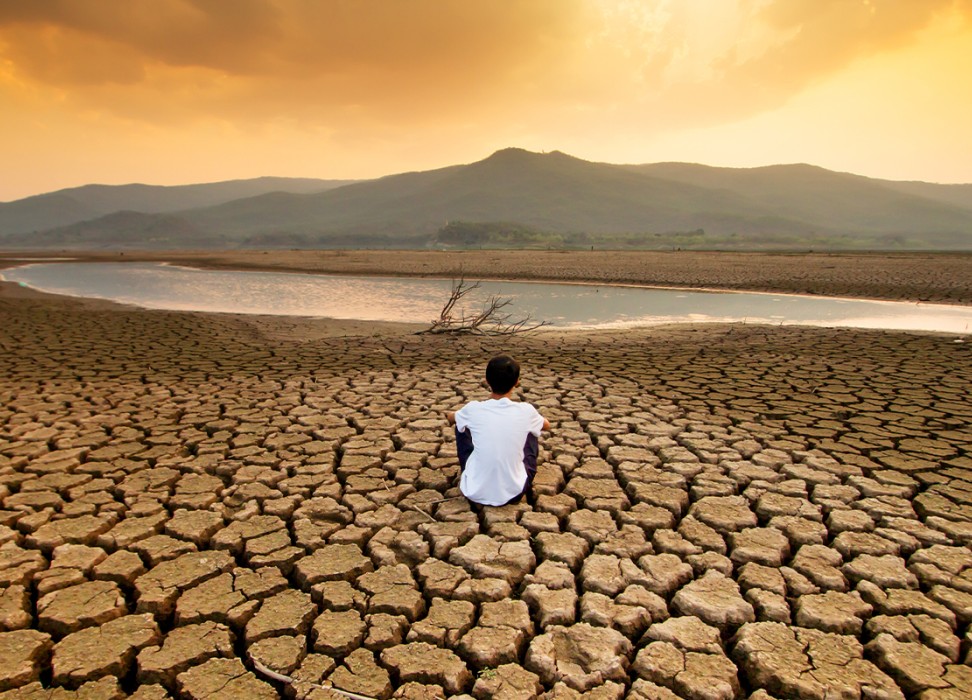
“Sometimes we don't recognise things that are important and valued until we lose them or they are in danger. In a way this explains what is happening now with the recognition of the importance and the link that humans have with the environment,” said Astrid Puentes, member of the Global Coalition of civil society organizations, Indigenous Peoples, social movements and local communities for “the universal recognition of the right to a clean, healthy and sustainable environment.”
In July 2022, the UN General Assembly (GA), the principal policy-making body of the UN, adopted a landmark resolution recognizing the right to a healthy environment. The GA’s adoption follows a similar resolution by the Human Rights Council in October 2021.
These resolutions were advanced in the wake of decades of advocacy by the environmental justice movement, a diverse group of human rights and environmental activists and their representative organizations including children and youth, women, Indigenous Peoples, workers, faith groups, persons with disabilities and others disproportionately affected by environmental harms.
Five states, Costa Rica, Maldives, Morocco, Slovenia and Switzerland, led the way introducing and negotiating the resolution with critical support from the 1,350 members of the Global Coalition who work in 75 countries around the globe. The work of the Global Coalition was recognized by the UN who awarded them the 2023 Human Rights Prize for their “persistent efforts … in achieving the historic recognition of the right to a clean, healthy and sustainable environment.”
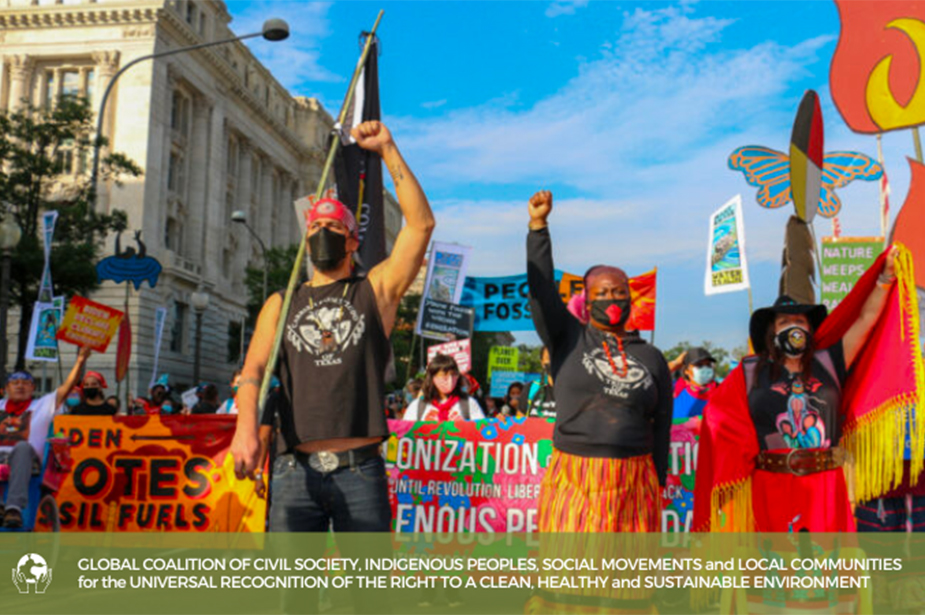
Members of the Global Coalition for the right to a healthy environment during a demonstration. GLOBAL COALITION
The right to a healthy environment
The right to a clean, healthy and sustainable environment is generally understood to include the right to clean air; a safe and stable climate; access to safe water and adequate sanitation; healthy and sustainably produced food; non-toxic environments in which to live, work, study and play; and healthy biodiversity and ecosystems. It also includes access to information; the right to participate in decision-making; and access to justice and effective remedies including the secure exercise of these rights free from reprisals and retaliation.
Speaking of the universal recognition of the right to a healthy environment, Benjamin Schachter, Coordinator of the Environment and Climate Change Team at the UN Human Rights Office said “All human rights are interdependent, indivisible and inalienable. The right to a clean, healthy and sustainable environment is necessary for the full enjoyment of all human rights, including the rights to life, health, food, water and sanitation, and development, among others,” he said. “Thus, the impacts of the triple planetary crisis of climate change, biodiversity loss, and pollution go well beyond the right to a healthy environment, jeopardizing the effective enjoyment of all human rights everywhere.”
He emphasized that, under international human rights law, all States have an obligation to respect, protect and fulfil the right to a clean, healthy and sustainable environment. Environmental justice advocates hope that the universal recognition of this right by the General Assembly will catalyse further changes in national, regional and international law and reinforce its implementation helping make the right to a healthy environment a reality for all people. What happens next will depend on how States and other duty-bearers, such as businesses, comply with their respective human rights obligations and responsibilities.
“
Human rights are not simply laws or an ideology — they are the key to survival of our species.
“
UN Human Rights Chief, Volker Türk
Schachter said that more than 150 countries have already recognized the right to a healthy environment through their Constitutions, laws, courts and regional agreements. How they practically uphold their commitments is on the table in national, regional and international decision-making processes around the world including the upcoming meeting of world leaders for the 28th UN Climate Change Conference in the United Arab Emirates later this month.
The GA resolution can have catalytic effects including increasing legal recognition, mainstreaming and implementation of the right, Schachter said noting it could be a starting point for constitutional and/or legislative reform to recognize the right, as recently occurred in Canada; strengthening mechanisms to guarantee the protection of environmental human rights defenders; and holding the private sector and States responsible for the environmental harms they have caused and their impacts on people.
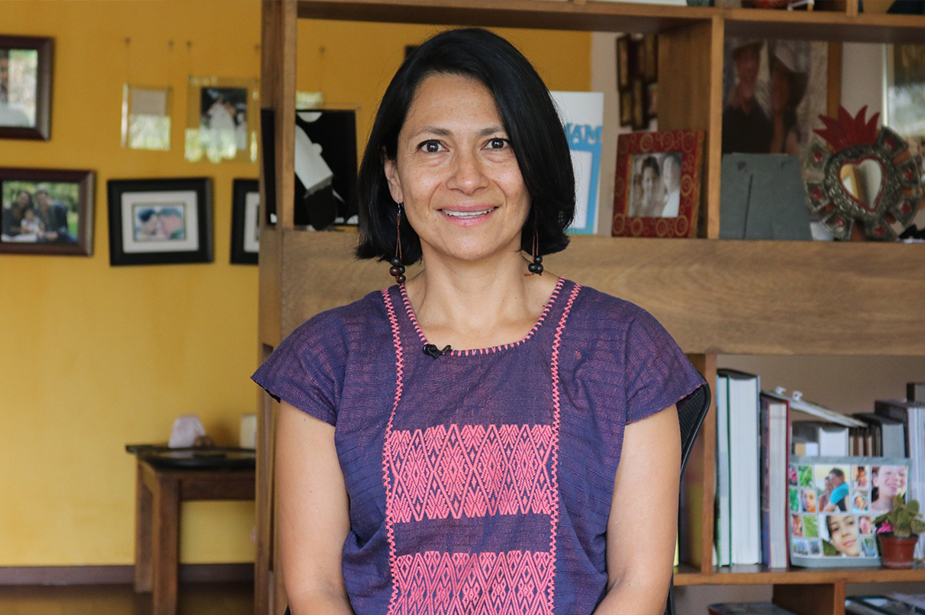
Portrait photo of Astrid Puentes, lawyer and independent consultant on human rights, the environment and climate. ASTRID PUENTES
For Puentes from the Global Coalition, the logical and vital next steps include the normative advancement of the right to a healthy environment by also achieving its recognition at the regional and national levels in order to support more effective implementation.
“Not only States, but there is a key aspect for the private sector. We were pleased to see some businesses join the Coalition and join the call for the right to a healthy environment, not only because it helps business but because it’s important for all of us to protect human rights,” she said.
Puentes added that States and the private sector, particularly the fossil fuel industry, must recognise their responsibility and be accountable for the triple planetary crisis, including specifically the climate crisis, related loss and damage, and their obligations to eliminate our dependency on fossil fuels.
Human rights and environmental protection
A right-based approach to environmental action empowers those affected by environmental harms and actions to address them and enhances inclusiveness, accountability and effectiveness of related decision-making Schachter said.
For example, Indigenous Peoples, widely recognized as being disproportionately affected by the human rights impacts of climate change, biodiversity loss and pollution, continue to struggle to make their voices heard. Respect for their rights, scientific knowledge, practices, concepts of justice and values must be part of transformative solutions to the triple planetary crisis, Schachter said.
The push for universal recognition of the right to a healthy environment was a case study in collective action and a powerful demonstration of the possibilities for environmental protection enabled by the exercise of human rights. Human rights are both a means and an end when it comes to protecting the environment Schachter added, noting that the right to a healthy environment can serve as an important legal basis for increasing rights-based environmental litigation in national and international courts and tribunals. In a recent ruling from a court in the US state of Montana, a group of 16 young people won a landmark lawsuit with the judge ruling that the state was violating their constitutional right to “a clean and healthful environment,” as well as their rights to dignity, health and safety, and equal protection of the law.
“We are in this together.”
Environmental degradation disproportionately affects individuals, groups and Peoples already in vulnerable situations. This includes women and girls who, because of pre-existing gender inequalities and discrimination, are disproportionately affected.
It also includes those compelled to move within and across borders due to sudden and slow-onset climate-related disasters. In 2021, over 22 million people were internally displaced by climate-related disasters according to the Internal Displacement Monitoring Centre.
Climate-related disasters compel millions to migrate under precarious and unsafe conditions and directly affect the enjoyment of a wide range of human rights, including the rights to life, adequate housing, education, water, food, health and security, among others, exacerbating situations of vulnerability, pointed out UN Human Rights’ advisor on migration and human rights, Carolina Hernandez.
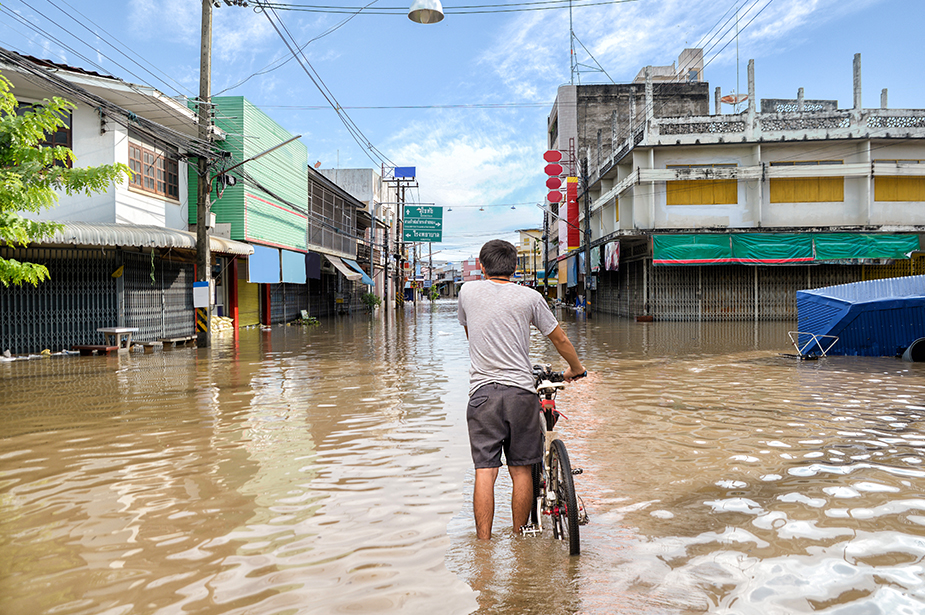
A flooded road due to heavy rain somewhere in Thailand. ISTOCK / GETTY IMAGES PLUS
Puentes pointed out that migration due to environmental crises is often seen as a threat and its management is increasingly militarized and security centred. Instead, migration must be addressed fully respecting and guaranteeing human rights, recognizing that it has increased because of the adverse impacts of climate change. It can also protect people and their human rights when facilitated through pathways for safe and regular migration.
“Migration is part of diversity and human nature. It enriches us and has been part of humanity’s development and progress,” she said, adding that all of us, individuals, States and the private sector, need to embrace a human rights-based approach to migration that puts people at the centre and recognizes the drivers of environmental and climate-related migration, starting with unsustainable consumption and production.
“One hundred and eight corporations are responsible for about 70 per cent of climate emissions in history. What we have done so far has not fully worked,” Puentes said. “Having the right to a healthy environment recognized is a first step, though it is not enough. We need to implement it and put it in practice. Compliance and assuming responsibility, assuming loss and damage, putting in place adaptation and mitigation that is effective is something that we need to do now.”
Puentes stressed that the Global Coalition worked with States, UN agencies, and other actors to push for the recognition of the right to a clean, healthy and sustainable environment.
“The Human Rights Prize for the Coalition is a reminder of what we can achieve when we collaborate. It's also a reminder that we cannot save the planet with just one State, one organisation, one Indigenous People - we must do it together.”
